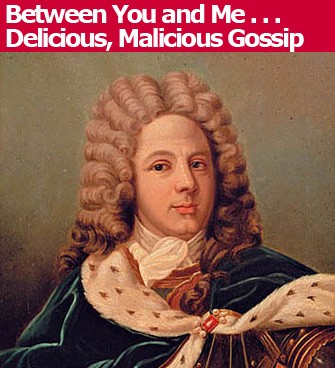
Nicholas Hammond begins his groundbreaking new study, Gossip, Sexuality and Scandal in France (1610–1715), by pointing out that there is no satisfying equivalent to the term “gossip” in French. Such linguistic disparities are sometimes deeply revealing: while French has a host of terms for management (gestion, direction, administration, chef, patron, gérant, dirigeant, etc.), for example, indicating a robust bureaucratic tradition, English is rich in technical terms related to new technologies that have no direct French equivalents. No such conclusions may be drawn in this case, however, since “both the concept and practice of gossip are… essential to understanding 17th-century and early 18th-century France.” As Hammond points out, this is a radical claim, since there is a tendency to view pre-Revolutionary France as being dominated by state agencies of control that repressed free speech and codified a rigid status quo. The importance of gossip at the time undermines such an inflexible interpretation.
Hammond engages in his own form of gossip when dealing with the scant treatment that most critics have afforded the topic. He suggests that this is not because of its fleeting nature (so much gossip never gets recorded) but rather because the theme has been disdained as trivial and even as inherently feminine in nature, revealing a deep vein of misogyny and, in some cases, homophobia: as recently as 2003, one author described Louis XIV’s brother Philippe d’Orléans, whose cross-dressing and same-sex tastes were common knowledge, as having “a multitude of attachments contrary to nature” and leading “a life of masculine turpitude.” As with the best pieces of gossip, Hammond allows this to speak for itself and refrains from any glossing. Such judgmental sentiments contrast with some surprisingly tolerant early modern depictions of same-sex desire. Philippe d’Orléans’s wife complains in her letters not about her husband’s affairs with other men as such but rather about the expenditure they will inevitably entail and the possibility that she will be sidelined.
Popular songs about Louis XIV’s half-uncle, the Duc de Vendôme (whose name serendipitously rhymes with “Sodome”) vaunt both his military exploits and male conquests. One anecdote relates how peasants living in the vicinity of the duke’s country house would line up along his hunting route to offer him a different sort of leisure pursuit, enabling these resourceful country lads to pay their taxes with the generous tip he always gave.
Among the sources that Hammond mines for reams of gossip is an 18th-century collection of largely 17th-century songs called the Chansonnier Maurepas. This relatively unexplored manuscript contains some real gems, sometimes composed in a decidedly literary register but more often than not impregnated with a bawdy, salacious tone. Hammond’s translations into English, by the way, do the original texts much justice; this is a not insignificant point, since John Boswell’s pioneering work on sexuality has been partially undermined by his often inaccurate renderings of Greek and Latin texts.
Such popular songs and the widely prevalent gossip of the period were an outlet for subversive opinions. The French authorities’ suspicion and fear of gossip resulted in the creation of the first modern police force in an attempt to stem its flow while collecting intelligence at the same time.
Gossip not only articulated dissent but also clearly voiced the love that would later dare not speak its name: “For those people who had desires for the same sex, gossip provided an invaluable medium through which they could discover people with the same inclinations…. They were able even to see themselves as a community, using a shared language which would be outrageous to outsiders.”
Hammond ends his study with a magisterial reassessment of what is arguably the greatest novel of the early modern period, La Princesse de Clèves (1678). His compact work, with its enviable balance between a scholarly approach and readability, offers a valuable contribution by reassessing the role of gossip during a pivotal period in French history. The subject’s pertinence goes far beyond the period covered (1610 to 1715): gossip continues to play a significant – and controversial – role in society today as debate rages about censorship on Twitter and phone hacking.
Gossip remains a deeply ambivalent thing: it may be delicious or malicious (or, indeed, both), and is inherently promiscuous, pervading all ages and all sectors of society. As Hammond notes, “Gossip may wear its information or speculation lightly, but its significance should never be underestimated.”
Paul Scott
Favorite
